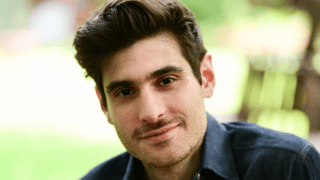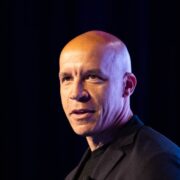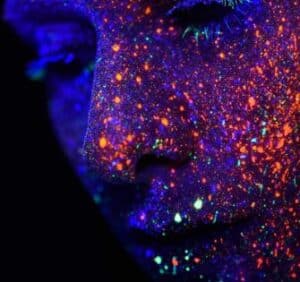The Lavin Agency Speakers Bureau
A speakers bureau that represents the best original thinkers,
writers, and doers for speaking engagements.
We value your privacy
We use cookies to enhance your browsing experience and to analyze our traffic. By clicking "Accept All", you consent to our use of cookies.
We use cookies to help you navigate efficiently and perform certain functions. You will find detailed information about all cookies under each consent category below.
The cookies that are categorized as "Necessary" are stored on your browser as they are essential for enabling the basic functionalities of the site. ...
Necessary cookies are required to enable the basic features of this site, such as providing secure log-in or adjusting your consent preferences. These cookies do not store any personally identifiable data.
Functional cookies help perform certain functionalities like sharing the content of the website on social media platforms, collecting feedback, and other third-party features.
Analytical cookies are used to understand how visitors interact with the website. These cookies help provide information on metrics such as the number of visitors, bounce rate, traffic source, etc.
Performance cookies are used to understand and analyze the key performance indexes of the website which helps in delivering a better user experience for the visitors.
Advertisement cookies are used to provide visitors with customized advertisements based on the pages you visited previously and to analyze the effectiveness of the ad campaigns.
A speakers bureau that represents the best original thinkers,
writers, and doers for speaking engagements.
We’re at a critical crossroads in the spread of AI. We can use it to oppress and exploit, or we can chart a course towards a more just and sustainable future.
Artificial intelligence may seem abstract, but it’s urgent that we understand how it’s working—and failing—in everyday life. Kate Crawford, a world-leading scholar in the field, says that although AI can be used to exploit people and resources, we can still regain control and lay the foundation for a better, more equitable world. Kate has advised policymakers from the White House to the United Nations and was named one of the TIME100 AI: the 100 most influential people in Artificial Intelligence. Drawing on her award-winning book Atlas of AI, she maps out the landscape and future of AI to help us see the full impacts of this fast-developing field. In her new talks, she breaks down generative AI tools like ChatGPT, and what they mean for our future.
“One of the world’s most thoughtful researchers on the impact of AI delivers a sobering, but essential, read.”
— Financial Times
For two decades, Kate Crawford has been on the cutting edge of technology and AI research. She’s studied generative AI like ChatGPT, large-scale data systems, machine learning, and artificial intelligence—and, crucially, the context in which our technology operates. She has appointments at top research institutions around the world, and she’s a Professor at USC Annenberg, a Senior Principal Researcher at Microsoft Research in New York, and the inaugural Visiting Chair for AI and Justice at the École Normale Supérieure in Paris. Kate has seen firsthand how technology can be used to exploit people and resources, but her work shows that we are at a crucial turning point for rethinking how these technologies are used for a more just and democratic society. If we understand what’s at stake, we can lay the foundation today for a better tomorrow.
Kate is the author of the award-winning Atlas of AI, a unique and grounded behind-the-scenes look at the complex topic of artificial intelligence. It was named to The Wall Street Journal‘s Five Best Books to Read to Get Smart About AI, and Nature called it “meticulously researched and superbly written.” She takes us into locations like lithium mines to Amazon warehouses to Jeff Bezos’ rocket base. Like a physical atlas, the book helps us understand the landscape of AI, the pathways that connect it, and where we fit into this vast technological world. Kate shows us a new way to understand and relate to AI, one that centers the stories and people behind the technology, and shows that these systems are neither artificial nor intelligent.
In addition to her books, articles and talks, Kate has also created award-winning collaborative projects with major artists around the world. Her Anatomy of an AI System with Vladan Joler depicted everything that goes into making a single Amazon Echo, and it won the Beazley Design of the Year Award, and is in the permanent collection of the Museum of Modern Art in New York and the V&A in London. Kate has developed new ways to “excavate AI”—to dig into how these systems work, a technique she developed in her collaboration with the artist Trevor Paglen, Excavating AI. Their app ImageNet Roulette became a viral sensation when it showed people how AI classifies them, and the project won the Ayrton Prize from the British Society for the History of Science. Kate has led research groups and major institutes in both academia and industry, and she’s been published everywhere from Nature to The New York Times.
Your talk was a fantastic success! I am still receiving raving comments that you are one of our audience's favorite presenters ever at this five-year-old event (and we have had some amazing speakers over the years). You have lit a fire in all of us.
ADP
Founder of 99 Ravens Former Global Director of Android Product Marketing and Partnerships at Google

Author, A Brief History of Intelligence AI Entrepreneur and Founder of Bluecore Forbes 30 Under 30 Honoree

First Deputy National Cyber Director for Technology and Ecosystem Security Former White House AI Council Member Former Google Global Head of Product Security Strategy

Leading Cybersecurity Executive Former Director, Cyber Threat Intelligence Integration Center and IC Cyber Executive Principal, WestExec Advisors
Author of The Age of Cryptocurrency and Our Biggest Fight Co-Host of the Money Reimagined Podcast MIT Media Advisor

First Deputy National Cyber Director for Technology and Ecosystem Security Former White House AI Council Member Former Google Global Head of Product Security Strategy

Founder of 99 Ravens Former Global Director of Android Product Marketing and Partnerships at Google

Author, A Brief History of Intelligence AI Entrepreneur and Founder of Bluecore Forbes 30 Under 30 Honoree

First Deputy National Cyber Director for Technology and Ecosystem Security Former White House AI Council Member Former Google Global Head of Product Security Strategy

Author of Grit, the #1 New York Times Bestseller | Pioneering Researcher on Grit, Perseverance, and the Science of Success

2024 Nobel Prize Winner | 3rd Most Cited Economist in the World | MIT Institute Professor | Bestselling Co-Author of Why Nations Fail and Power and Progress

Pulitzer Prize-Winning Creator of The 1619 Project | Executive Producer of the Emmy Award-Winning 1619 Project Hulu Docuseries | MacArthur Genius

Nike's Former Chief Marketing Officer | Author of Emotion by Design
CEO of The Atlantic | Former Editor-in-Chief of WIRED

